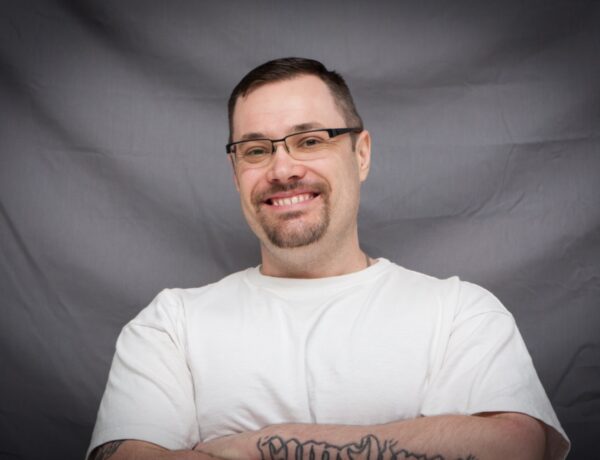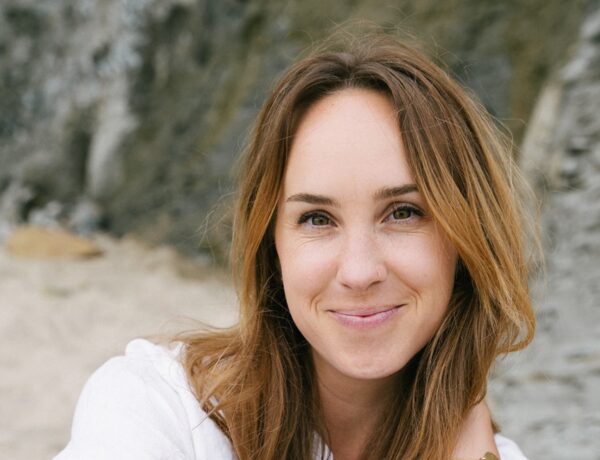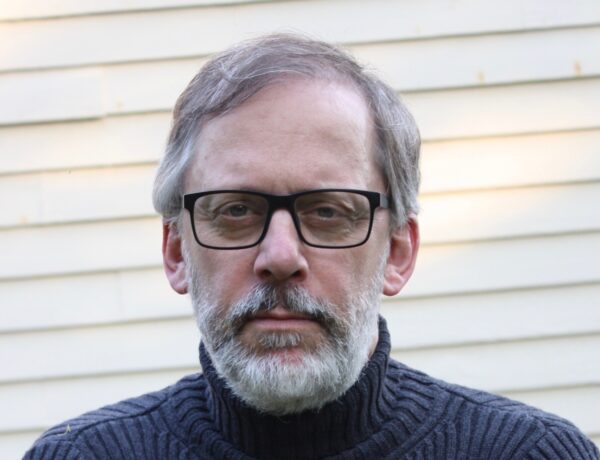Karen Pinchin is a journalist known for her complex, investigation-driven stories on food, science, culture, and the environment. Residing in Nova Scotia, she teaches narrative non-fiction writing at the University of King’s College. Her first book, which chronicles the chase of an Atlantic bluefin tuna by a mercurial fisherman, was published in July 2023 by Dutton, Knopf Canada, and William Collins, gaining significant attention from outlets like The New Yorker, The Wall Street Journal, and CBC’s The Current.
As the 2019/2020 Tow Journalism Fellow at PBS FRONTLINE, her work has been featured in various magazines and newspapers, including Canadian Geographic, Scientific American, Vox, The Globe and Mail, The Walrus, National Geographic, Maclean’s Magazine, and The Counter. She is a member of the Society of Environmental Journalists, the National Association of Science Writers, and Investigative Reporters and Editors.
Hi Karen, welcome to Famous Writing Routines, we’re so glad to have you here with us today! Your book, Kings of Their Own Ocean, has been the result of your experiences as a Tow Journalism Fellow at PBS Frontline and your work has appeared in a variety of magazines and newspapers, can you share your journey as a journalist and how you came to specialise in stories about food, science, culture, and the environment?
At first, I wanted to pursue a degree in English, but both my parents were scientists and didn’t like the idea of that, so I settled on studying journalism at Carleton University in Ottawa as a compromise. (At least I’d have a “real” profession?) My first newsroom job was at The Canadian Press, a national newswire service, and I went on to work at Maclean’s magazine.
I went to culinary school to understand how restaurants and our food systems operate, and started freelancing while based on Canada’s east coast. That’s when I wrote my first longform investigation on seafood distribution, which won a regional journalism award, and it was clear I had discovered a vital and underreported niche.
Your background includes studies in journalism, history, French, international affairs, and professional cooking, how do these diverse experiences inform your writing and research?
I love learning! It’s both a feature and a bug in my work, so I’ve learned to trust my instincts. Journalism provided professionalisation, history context, French a better sense of what it means to be Canadian, international affairs a global viewpoint, and professional cooking as the lens through which to tell stories about the human and non-human world.
You’re a member of the Society of Environmental Journalists and the National Association of Science Writers — what role do you believe journalists play in promoting environmental and scientific literacy?
If you subscribe to this idea as journalism providing the first draft of history, I think we play a vital role in acting as a sort of first responder to information as it trickles through society. The onus then becomes to earn and hold trust, which is tricky when we’re dealing with nuanced scientific work that’s coming out of academia. We have an obligation to work as thoughtful translators of others’ work, and must strive, beyond all else, to be fair, accurate, and contextual in the stories we tell.
As a recipient of grants from the Sloan Foundation, the Canada Council for the Arts, the Fund for Environmental Journalism, and the Access Copyright Marian Hebb Research Grant, can you talk about how these grants have helped your writing career?
I think of these grants as rocket boosters, propelling a writer’s work far beyond what they are often capable of producing within a frail human body beyond support. The Hebb grant was my first, and allowed me to travel and research in food science relatively generally, which brought me my first major food science feature (in Canada’s Report on Business magazine, on cherry breeding!) The FEJ brought me to reporting on harmful algal blooms’ effects on shellfish and how they’re affecting Indigenous food systems and sovereignty in rural Alaska, which was published in Scientific American.
Getting those two grants helped me gain confidence and an understanding of *how* to write a grant, which really came in handy when I came to the Canada Council and Sloan with a really ambitious book proposal. These grants were absolutely vital to shaping my current book, Kings of Their Own Ocean, and launching it into another realm of relevance, accuracy, and urgency.
Can you describe your writing routine and how you typically spend your days while working on a book or article?
When I really need to churn out material I wake up and write from 4am to 7am with a giant mug of hot tea. I’ll do research and interviews in the morning, then nap, then more work, then parenting until I pass out early. When I’m on an article deadline I try to keep things more within business hours.
Do you have any specific techniques or tools that help you stay focused and motivated while writing?
It’s all about figuring out when and how you write the best and fastest and then engineering your whole life around that. Having a discrete space for writing makes a big difference for me. (Right now I’m working out of a friend’s basement; all I really need, most days, is a door that closes and electricity.) Near my book deadline, I completed a writing challenge with a friend using Pacemaker and that was incredible in getting me across the finish line of my final word count. Lots of snacks (popcorn!) and endless mugs of tea. I don’t really drink coffee!
How do you handle writer’s block and overcome creative challenges in your work?
I swear by the mantra that all writing problems are reporting problems. When I drag to a stop, I do more research, do an interview, scrounge for inspiration. That works.
If you could have a conversation with any author throughout history about their writing routine and creative process, who would that person be?
Oh MAN. That’s a tough one. I really love writers who are intentional and clear about their process, like Robert Caro, John McPhee and George Saunders. But I’d have to go with Emily Bronte, for a better understanding of the process set in the context of being a woman.
I’d love to know about the books you’re reading at the moment. What have been some of your favourite reads?
I have a hard time reading non-fiction when I’m writing it, so right now I’m listening to the audiobook of A Swim in a Pond in the Rain by Saunders. I’m reading The Wave by Susan Casey, which is staggering and particularly exciting as I’ll be joining her at the Miami Book Fair in November. For pleasure I just finished a post-apocalyptic vampire trilogy by Justin Cronin, and am reading Barbara Tuchman’s A Distant Mirror: The Calamitous 14th Century.
What does your current writing workspace look like?
Like I said, I currently work in a room in a friend’s basement. I have a monitor and remote keyboard that hooks up to my laptop on a stand. I have a Blue Yeti mic for the many podcast interviews I’ve been doing about the book (this Gastropod one episode is one of my favourites!), a giant whiteboard with my to-dos on my left, a lamp, a beanbag chair for reading, and some art scattered around for inspiration. I love Brian Eno and Peter Schmidt’s Oblique Strategies cards when I need a little boost.



No Comments